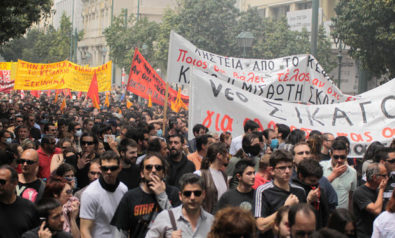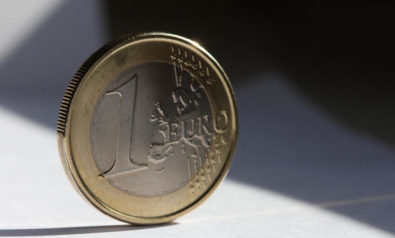
Though two years into the European Financial Crisis political progress has been made to rebuild the economies of European Union countries, economic instability remains prevalent across the continent, particularly in Greece and Spain.
Background
Two years into the European Financial crisis, some political progress has been made. European Union members have agreed to a banking union and signed a fiscal compact. Germany has reversed its position on stimulus and now conditionally supports expansionary measures.
However, uncertainty remains; the banking union is ill-defined and some legal observers question the added value of a fiscal compact when similar rules already existed.
Meanwhile, market confidence and economic growth prospects have not improved in the problem economies. Greece remains dependent on cash injections from its neighbors to pay bills and civil servants. In Spain, unemployment continues to climb, nearing 25% in July with youth employment at 53%. Spain’s borrowing costs remain around 7% and its economy is poised to contract again in 2012.
Europe remains determined to hold together its currency union and move towards recovery in small steps. However, in this 360° Analysis Fair Observer proposes new, bold, and out-of-the-box initiatives.
Why is the European Financial Crisis important?
Europe, like the United States, is one of the world’s largest markets for consumer goods and services. European demand impacts Chinese exporters, which in turn impacts raw materials producers in Africa and Latin America.
The financial crisis is compounded by demographics and globalization. European societies are getting older, creating new policy challenges. And just as globalization has opened new markets for European goods, growth in many emerging economies makes Europe less attractive as a candidate for investment.
For more than 10 years, Fair Observer has been free, fair and independent. No billionaire owns us, no advertisers control us. We are a reader-supported nonprofit. Unlike many other publications, we keep our content free for readers regardless of where they live or whether they can afford to pay. We have no paywalls and no ads.
In the post-truth era of fake news, echo chambers and filter bubbles, we publish a plurality of perspectives from around the world. Anyone can publish with us, but everyone goes through a rigorous editorial process. So, you get fact-checked, well-reasoned content instead of noise.
We publish 2,500+ voices from 90+ countries. We also conduct education and training programs on subjects ranging from digital media and journalism to writing and critical thinking. This doesn’t come cheap. Servers, editors, trainers and web developers cost money.
Please consider supporting us on a regular basis as a recurring donor or a sustaining member.
Support Fair Observer
We rely on your support for our independence, diversity and quality.
Will you support FO’s journalism?
We rely on your support for our independence, diversity and quality.







